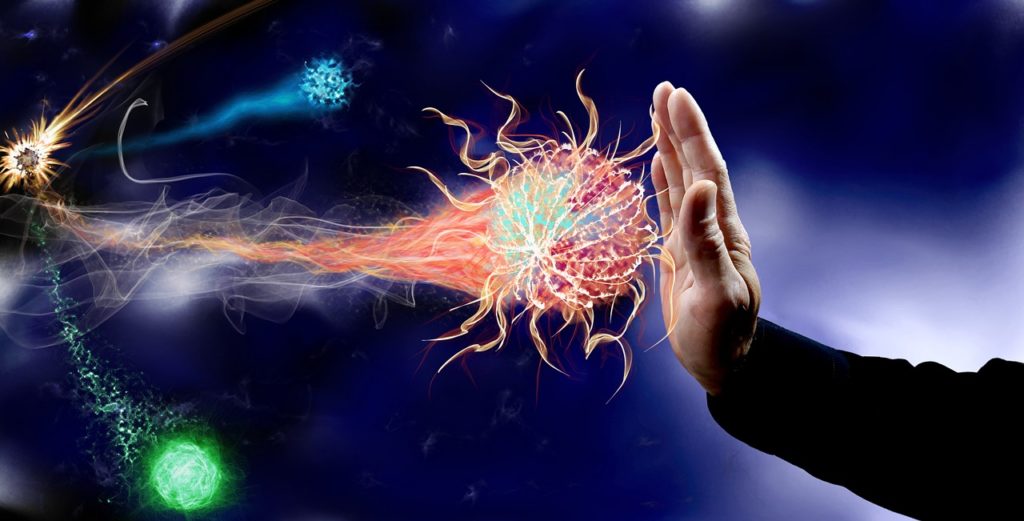This is your ultimate Sapiens Maximus guide on the benefits of sleep. While this might not sound super exciting, it’s absolutely transformational.
Don’t take this article lightly; it has the power to completely transform your relationship with your 😴.
In turn, as this article demonstrates, upgrading your relationship with sleep is essential if you want to become a Sapiens Maximus – the best version you could be.
Sleep: The Ultimate Magic Pill?
Homo Sapiens spends billions of dollars each year on pills and products of questionable effectiveness in an attempt to be healthier, slimmer and more attractive. Billions more are spent on combating a wide range of diseases. These could range from a mild cold to cancer.
We are often so caught up in climbing the corporate ladder or trying to make ends meet that we overlook or even actively sacrifice one of the most powerful weapons in our health arsenal: a good night’s sleep.
What follows might sound hyperbolic. However, as you will discover from our discussion on sleep, it is scientifically accurate. Obtaining a good night’s sleep might be the single most powerful thing you could do to improve your health. Even more powerful than exercising – which we discuss here.
The “Pussification” Of Sleep
Tragically, our “hustle” culture has continuously chipped away at sleep’s appeal. At some point, we as a culture took a tragically wrong turn. Getting a good night’s sleep became almost shameful. A sign that you are not committed or driven enough. This is counter-productive and irresponsible macho crap.
In this article, in a typical Sapiens Maximus fashion, we push back against the misinformation and malinformation out there. We provide you with the knowledge you need to (i) cut through the BS associated with sleep (or lack thereof) and (ii) better manage your life and health.
We discuss some of the astounding benefits you get from this magic pill. Ready to collect on a daily basis without paying a penny to Big Pharma. Importantly, on the flipside, we discuss the severe disadvantages associated with inadequate sleep.
But … What If I Don’t Have Enough Time To Sleep Enough?
By the end of our discussion on the benefits of sleep, one conclusion should be crystal clear to you: a good night’s sleep should be the rule in your life rather than the exception. Don’t roll your eyes and tell yourself you just don’t have the time. Spend less time mindlessly scrolling through social media, watching Netflix or doing one of the many BS activities you freely give your time to. Prioritize your health instead.
Content Breakdown
This wouldn’t be a Sapiens Maximus article if we didn’t provide you with a ton of high value, scientifically substantiated content. While we trust that you are not one of those intellectual lightweights with the attention span of a goldfish, we want you to be able to skim and skip through the article easily.
Below are the key topics we discuss:
3. Psychological Benefits of Sleep
Physical Benefits of Sleep
1. Sleep is a Powerful Tool in your Weight Loss Arsenal
Studies have demonstrated that inadequate sleep is associated with poor weight management and obesity.
The relationship between sleep and weight is complex and, in some instances, not entirely understood. Having said that, we discuss below two key elements that the scientific literature is fairly certain about.
Sleep Helps With Hunger Management
Phrased differently, inadequate sleep increases hunger.
Have you ever noticed how after a poor night’s sleep you crave food much more than usual?
Fundamentally, this is tied to two hunger hormones: leptin and ghrelin. Leptin is the satiety hormone. Conversely, higher ghrelin = more hunger.
You might have connected the dots already. Studies have shown that inadequate sleep reduces levels of satiety-inducing leptin while simultaneously increasing levels of hunger-triggering ghrelin. In other words, lack of sleep creates an imbalance in your hunger hormones which makes it very difficult not to overeat.
Sleep Helps With Impulse Control

In addition to the increased hunger after a poor night’s sleep, did you notice what kinds of food you crave? Chances are, they’re not the healthiest. From sugary snacks to junk foods, it seems that temptation when you’re sleep deprived is more intense than usual.
You might be wondering why this happens. One answer is that scientists have linked inadequate sleep to a more inhibited frontal lobe. What the heck is the frontal lobe, you ask? Well, it’s the part of your brain that’s responsible for (among other things) impulse control.
Sleeping poorly therefore delivers a double whammy. You crave (1) more food that’s of (2) poorer quality. In other words, quantity goes up while quality goes down.
2. Sleep Combats Insulin Resistance
Not only does inadequate sleep cause you to overeat, it also makes your body insulin resistant.
Conversely, adequate sleep makes you more insulin sensitive. Why should you care? Because studies have linked insulin resistance to a host of diseases – from type-2 diabetes to PCOS and beyond.
Importantly for a lot of people, insulin resistance makes it much more difficult to sustainably lose weight. The relationship between insulin resistance and obesity is a bit of a chicken and egg problem – does obesity cause insulin resistance or does insulin resistance cause obesity?
At Sapiens Maximus, based on the available evidence, we think that insulin resistance is a (possibly “THE”) key cause of all metabolic diseases, including obesity. In Why We Get Sick: The Hidden Epidemic at the Root of Most Chronic Disease – and How to Fight It, Dr. Bikman does an excellent job making this argument on the basis of the latest scientific data.
However, ultimately, it’s a vicious cycle: insulin resistance fuels metabolic diseases such as obesity, and such metabolic diseases exacerbate insulin resistance.
The Triple Whammy Of Inadequate Sleep
This in turn means that inadequate sleep now delivers a triple whammy to those trying to sustainably lose weight:
(1) First, it gets the quantity of food to go up.
(2) Second, it gets the quality of food to go down.
(3)Third, due to insulin resistance and poor blood sugar regulation, it makes your body unable to effectively deal with the effects of (1) and (2).
Bottom line? If you want to lose weight and avoid metabolic disease, then adequate sleep is not a luxury but a necessity.
On the topic of necessities, the next benefit – having a good immunity – ranks very high up on the list.
3. Sleep Supercharges your Immunity

Having optimal immunity is not merely about avoiding and, if necessary, combating mild colds and flus. It’s not something only relevant to older, more vulnerable people.
It’s absolutely key for everyone – of any age or background. In some instances, it could be the difference between life and death.
In one (in)famous study, researchers studied cancer progression in mice with fragmented sleep as compared to ones sleeping normally. The study showed that the cancer in mice with fragmented sleep developed much more aggressively, proliferating at accelerated rates.
This study however by no means stands alone. The symbiotic relationship between sleep and better immunity is well established in the scientific literature. See for example the studies here, here and here.
Poor Sleep & NK Cells
What is the cause and effect relationship in this instance? One key point is that inadequate sleep negatively affects our Natural Killer (NK) Cells. In one study, researchers have shown that a single night of poor sleep resulted in substantially lower levels of NK Cells.
What are the NK Cells, you might ask? You could think of these as your internal SWAT/Commando teams. They perform key defensive mechanisms including eliminating cancer and virus-infected cells. When our NK Cells struggle because of our poor lifestyle choices, we make ourselves vulnerable to a host of diseases.
The key takeaway is clear: adequate sleep is absolutely essential for optimal immune function. Conversely, poor sleep exposes you to a life of disease, frailty and health complications. You’ve been warned.
4. Sleep Enhances Heart Health
You are almost certainty aware of this one – but we would be amiss if we don’t mention it: sleep is critical for cardiovascular health.
The intermediary causes of inadequate sleep’s detrimental effect on our cardiovascular health are numerous – from increased heart rate to hypertension and atherosclerosis (i.e. blockage of your arteries).
At a fundamental level, however, it seems that a key culprit is an overactive sympathetic nervous system. One of the sympathetic nervous system’s key functions is to stimulate the body’s fight or flight response.
When faced with a dangerous situation, Homo Sapiens has evolved to be able to automatically immobilize a wide range of processes to rise to the challenge. This for example entails supercharging the body’s alertness, boosting heart rate and pumping extra blood into the muscles.
The sympathetic nervous system’s fight or flight response is therefore an essential weapon in our arsenal of survival kits. However, by its very nature, it is intended to be short and intense.
Sleep Deprivation & Never “Switching Off”
The problem with chronic sleep deprivation (and chronic anxiety, as you can see in our ultimate guide here) is that the sympathetic nervous system and its powerful processes are never switched-off. The fight or flight response becomes the rule rather than the exception. This in turn wreaks havoc on our physiological health generally and our cardiovascular system specifically.
To avoid this bleak fate, make sure you’re getting your sleep in.
Next on the list: the relationship between sleep and sex (which is, arguably, more interesting than heart health 🙃).
5. Sleep Boosts Your Sex Life & Helps with Successful Procreation

Studies have shown that inadequate sleep is associated with impaired semen quality and quantity. In addition, for our readers with testies, researchers have shown that inadequate sleep literally leads to smaller testicles. This is rather ironic in light of the usual “macho” vibes sleep detractors give.
For our female readers, you unfortunately don’t get a free pass. There is a growing body of evidence that links inadequate sleep to worse reproductive health and even infertility.
Key takeaway? For anyone NOT committed to a monastic life of celibacy (probably everyone reading this article?), sleep is a necessity rather than a luxury. Our testosterone fuelled “alphas” who want a clanging pair of testies should take note.
6. Sleep Makes You More Attractive
Closely following-on from sleep and sex, researchers have shown that sleep makes you more attractive. In one scientific study, researchers investigated whether people were perceived as less attractive after a poor night’s sleep.
For this purpose, participants were photographed after (i) a good night’s sleep and (ii) sleep deprivation. These photographs were then randomly distributed to untrained assessors who graded the participants for (among other things) attractiveness.
As you might have already guessed, assessors found sleep deprived participants to be less attractive, less healthy and more tired.
This hardly comes as a surprise. We have always understood that sleep makes us more attractive. Age-old references to “beauty sleep” demonstrate it.
From better blood circulation (and the associated “glow”) to more collagen, sleep is a powerful tool in your beauty arsenal. Our female Sapiens Maximus readers might want to pay particular attention to this sleep benefit.
Mental Benefits Of Sleep
Good sleep already seems like nothing short of magic. People would, and already do, pay good money for an illusory weight loss or beauty pill. Yet as studies show, good sleep is the real magic pill – and it’s free. Any one of the benefits discussed so far, including stronger immunity in these perilous times, should be sufficient for you to make sleep more of a priority.
However, we are merely scratching the surface. Below, we continue our expedition into sleep’s benefits while exploring the relationship between sleep and cognitive performance.
7. Sleep Supercharges Learning & Enhances Memory

The hippocampus is a part of your brain that’s key in learning and memory. Whenever you want to learn a new fact, the hippocampus is activated. If you want to remember this fact, you could use the following memory tactic: visualize a massive hippo with strict school attire on a college campus – making its way to class while everyone looks astonished.
Hippo + Campus = Learning & Memory.
One of the hippocampus functions is to temporarily store newly learnt information. However, crucially, the hippocampus has substantial storage capacity constraints. As the day progresses and you absorb more information (whether consciously or, as is often the case, unconsciously), the hippocampus reaches its storage limit. Learning new material becomes harder.
The magic of sleep is that it allows the transfer of information from the hippocampus (which serves as short term reservoir) to the cortex (which has quasi-infinite storage space).
This has a double positive effect. On one hand, after you sleep, your hippocampus frees up to absorb new materials and learn optimally. On the other, information already learnt is more securely stored – thus enhancing consolidation and long-term learning.
The studies have been done (see for example here, here and here). The results are in. Neurocognitive performance is enhanced by optimal sleep and, conversely, worsened by inadequate 😴.
8. Sleep Sharpens Attention
This should hardly come as a surprise but studies have shown that attention deteriorates with sleep deprivation. In particular, one study in the prestigious Nature publication has shown this with respect to vigilant attention (i.e. the ability to maintain stable, focused concentration across a given time period).
It almost goes without saying, but lapses of attention could be highly costly. In immediate terms, a poor night’s sleep could be the difference between dying in a car accident (i.e. drowsy driving) and making it to see another day. A third scenario would be having someone else’s death on your conscience. Next time you decide to drive while sleep deprived, keep this in mind. In the US, approximately 13.1% of non-fatal crashes (resulting is hospitalization) and 16.5% of fatal crashes involved drowsy driving.
Poor Attention: Very Costly In The Long-Term
In not so immediate terms, having a distracted mind doesn’t come cheap either. To state the obvious, you are likely to perform much worse at your job and/or in your studies if you are unable to concentrate. Your learning suffers. From a more general standpoint, your quality of life deteriorates.
We have an abundance of distractions in today’s world, as our article on dopamine extensively argues. With an exhausted and unfocused mind, you’re likely to find yourself compulsively wasting time and jumping from one meaningless thing to another. Courtesy of garbage but highly entertaining content on TikTok and other platforms.
Being able to FOCUS is more important than ever. Getting adequate sleep is key for your ability to do so.
9. Sleep Helps with Mastering Motor Skills

At a very basic level, a motor skill is one that you don’t have to think about. It’s automatic. More formally, we can define a motor skill as the learned ability to cause a predetermined movement outcome with maximum certainty. Common examples include driving a car or riding a bike. More generally, motor skills also cover the world of athletic and artistic/musical performance.
Studies have shown that sleep substantially improves motor skills (see for example this, this and this). As Matthew Walker brilliantly puts it, it’s not practice that makes perfect. It’s practice with sleep.
In any event, who cares about the scientific studies. Try it for yourself. Next time you are practicing hard – whether it’s playing a musical instrument or mastering a combination on the basketball court – pay careful attention to your performance after a good night’s sleep. Chances are you’ll be able to execute the motor skill substantially better.
10. Sleep Boosts Creativity
What is creativity? At a basic level, as William Plomer puts it, it’s the power to connect the seemingly unconnected. This is not merely relevant for writers and artists. It’s transformational for virtually everyone. The mind and its creativity are the ultimate tools for conquering challenges, upgrading your life and reaching Sapiens Maximus status.
Adequate sleep, and particularly dreams, have been associated with more creativity. This includes creative problem solving where your brain subconsciously processes, filters and synergizes information to come up with novel solutions to challenges. This is particularly the case in relation to problems you have been obsessing about.
Get The “Committee of Sleep” To Help You Out
In the Committee of Sleep, Deirdre Barrett shares an abundance of historical instances where sleep has led creative geniuses to their great accomplishments and discoveries – from Beethoven to Salvador Dali and Stephen King.
You could experiment with this yourself. Fixate on a given problem before you go to sleep. Obsess about it. Consider the available data and all the potential solutions. Then let the “Committee of Sleep” work its magic.
When you wake up, immediately scribble your thoughts and/or dreams on a piece of paper. If your brain is genuinely preoccupied with the problem, and if you do this often enough, you will almost certainly encounter novel solutions to the issue. At the very least, you’ll be able to make good progress with the problem you’re trying to solve.
Our ancestors have intuitively understood this since ancient times. Whenever we have a difficult problem, we have always been advised to ‘sleep on it’. In light of mounting scientific evidence and prevalent personal experiences/anecdotes, this common piece of advice gets the Sapiens Maximus stamp of validation.
Psychological Benefits of Sleep
The physical and cognitive benefits of sleep are, by any reasonable measure, immense.
However, our arduously long expedition of sleep’s benefits is not over yet. Below, we hammer the point of sleep being a magic pill EVEN MORE by discussing some of its key psychological benefits.
11. Sleep Combats Anxiety

We know all too well that anxiety and an over-active mind lead to poor sleep. Stressors about work, relationships and responsibilities generally keep us awake at night more often than we’d like. In some instances, they could go as far as cause us insomnia. Gradually transforming us into the walking-dead – shadows of our Sapiens Maximus selves.
A key point however is that this is a vicious cycle. Anxiety leads to poor sleep but very importantly, poor sleep substantially exacerbates anxiety. To make things even worse, worrying about your poor sleep adds another layer of anxiety and, by extension, leads to the self-fulfilling prophecy of a worsening sleep schedule.
The studies on this are clear. If you are experiencing debilitating anxiety, a key step you could take towards putting your life back together is to get adequate sleep. However, per our discussion above, this could be easier said than done. To maximize your chances of breaking the anxiety ⇌ poor sleep vicious cycle, make sure to check out our ultimate guide on managing anxiety here.
If you recognize sleep’s importance in combating anxiety, you’d already be taking a substantial step in the right direction. It is then a question of finding the right tools to improve your sleep quality – from maintaining a consistent sleep schedule to implementing good sleep hygiene habits. Watch out for our upcoming ultimate sleep hygiene guide.
12. Sleep Wards Off Depression
The same reciprocal, vicious relationship we discussed between sleep deprivation and anxiety exists between sleep deprivation and depression.
While the literature has generally focused on depression causing sleep difficulties, studies linking sleep difficulties to exacerbating depression are compelling. For example, in one study, researchers have shown that non-depressed people with insomnia are twice as likely to develop depression when compared to people obtaining adequate sleep.
Conversely, it has been shown that treating insomnia (with cognitive behavioural therapy in this case) helped combat existing depression.
The cause and effect relationships – whether in relation to anxiety or depression – are complex and sometimes not entirely understood. However, one sensible explanation is that poor sleep deepens anxiety and depression by allowing the overactive amygdala to operate unchecked. Don’t worry if this sounds technical – we break it down below when discussing emotional regulation.
13. Sleep Helps With Emotional Regulation
The amygdala is a structure in your brain responsible for emotional regulation. The prefrontal cortex on the other hand is key for rational and complex cognitive behaviour. In many ways, the prefrontal cortex keeps the amygdala in check so that you don’t experience unjustifiably wild emotional swings.
Getting inadequate sleep damages the Amygdala-Cortex connectivity – thus allowing the amygdala to operate unhinged. This in turn leads to substantial mood swings, from deep depression to mania and everything in between.
Separately, scientists have also shown sleep deprivation to impair our ability to process emotional information – leading for example to a lack of emotional empathy. Other feelings commonly associated with sleep deprivation include anger/hostility and confusion.
As such, generally, inadequate sleep is not conducive to a healthy emotional and mental state. You don’t have to read this in an article to know its relevance and veracity. If you have been sleep deprived for some time, you have almost certainly experienced these negative emotional consequences first-hand.
A key step to better managing your emotional and mental health therefore starts with giving a good night’s sleep the weight it deserves.
The Bottom Line
In this article, we have demonstrated that getting adequate sleep is just about the best thing you could do to live a healthier, happier, wealthier life. It’s not about some magic pill that you pay Big Pharma for. We often scoff at what’s free. But what we’re missing is that sleep has been paid for with millions of years of evolution. While it might be technically free, this article has shown that it’s nothing short of priceless.
If there is one key takeaway from this article, it’s that adequate sleep is not a luxury but a necessity. The “pussification” of sleep is misguided and deeply irresponsible. It’s time we go beyond these unhelpful narratives and fix our damaged relationship with the ultimate magic pill.
As always, we wish you good luck on your journey to strength in adversity, calm amidst the storms, relentless resilience and uncompromising health.
Your self-proclaimed family,
The Sapiens Maximus team
Sources & Further Readings
1. Why We Sleep: The New Science of Sleep and Dreams – Matthew Walker


Pingback: Benefits Of Physical Exercise: Ultimate Sapiens Maximus Guide - Sapiens Maximus
Pingback: The Art & Science of Breathing Optimally: Ultimate Guide